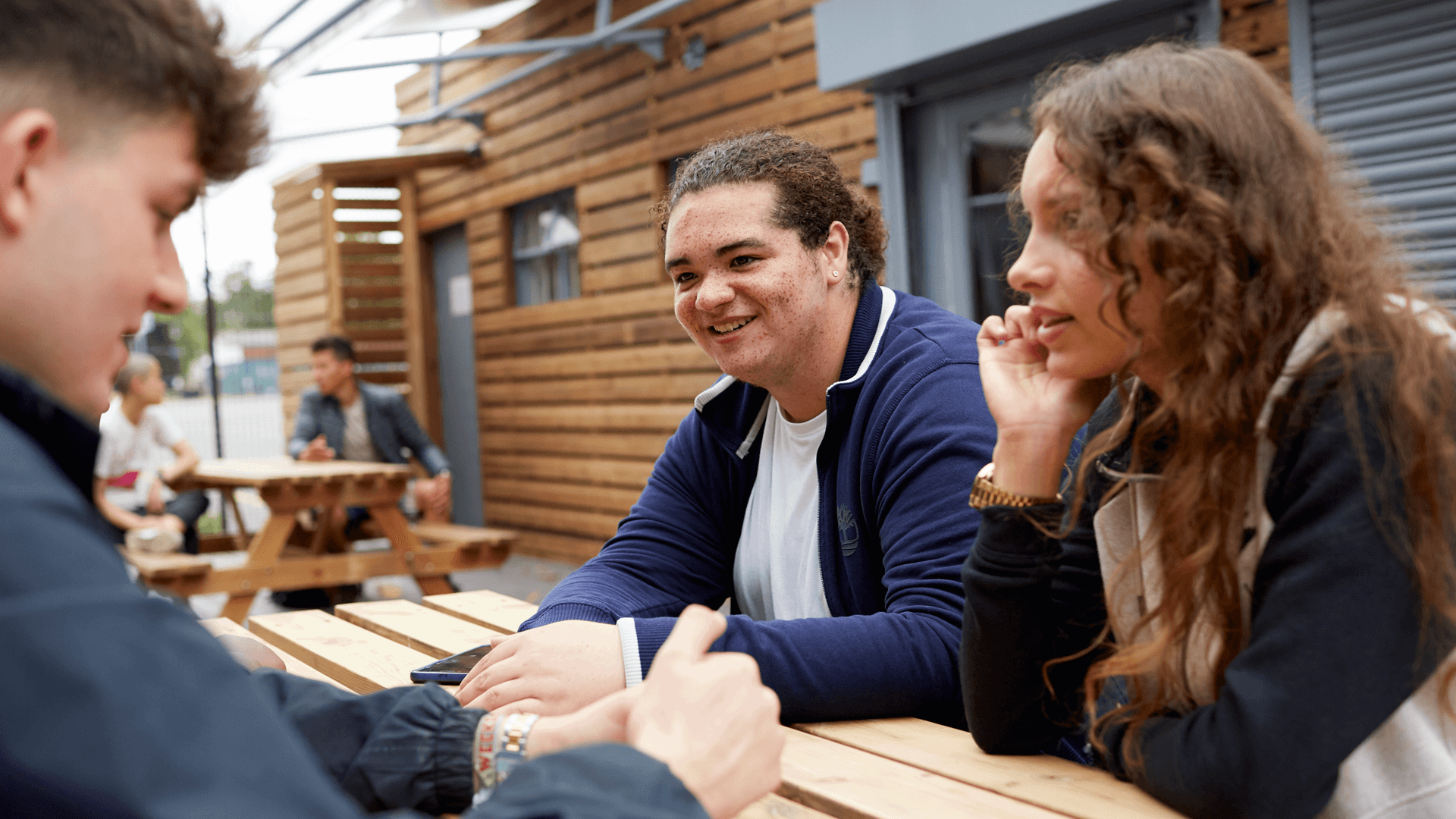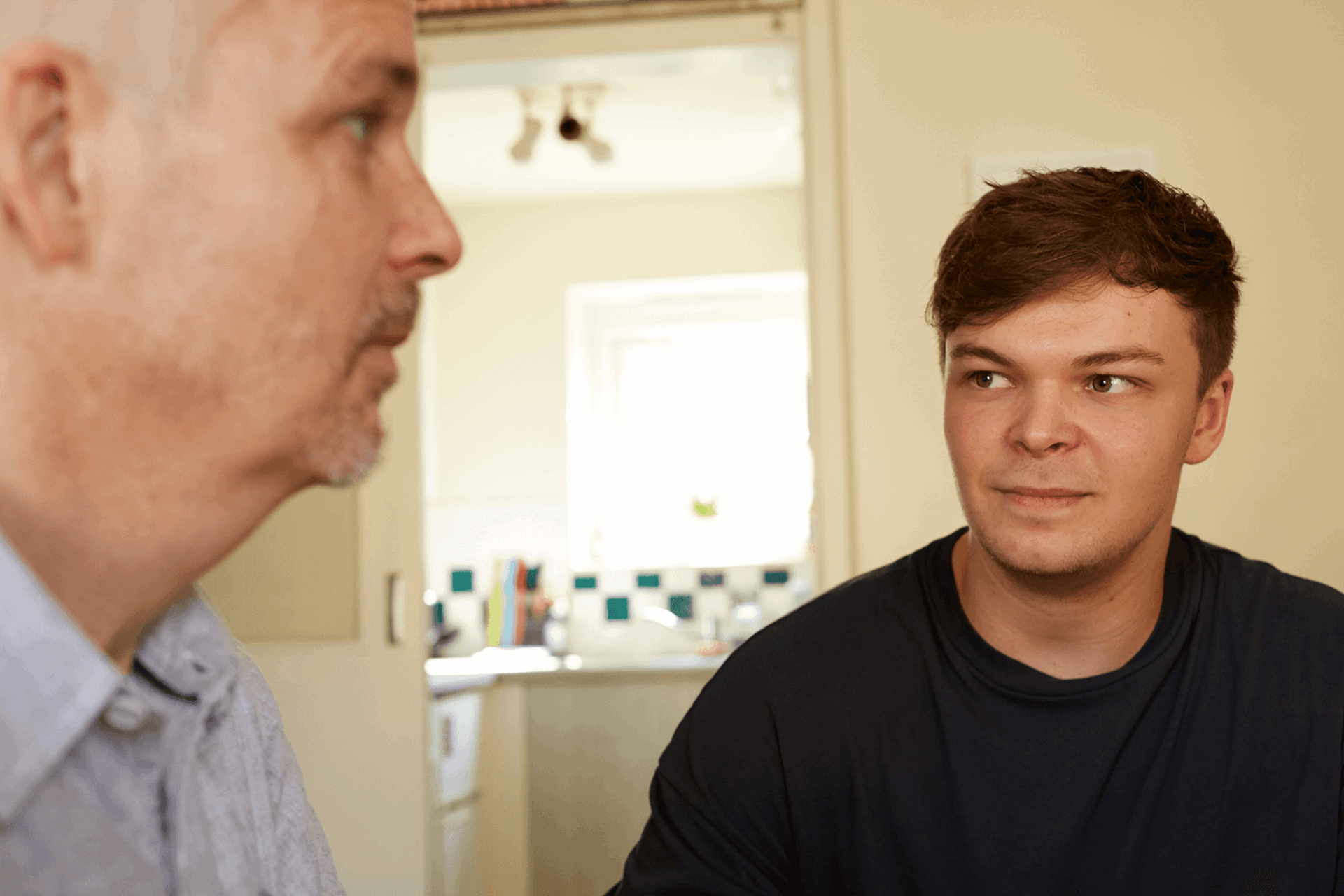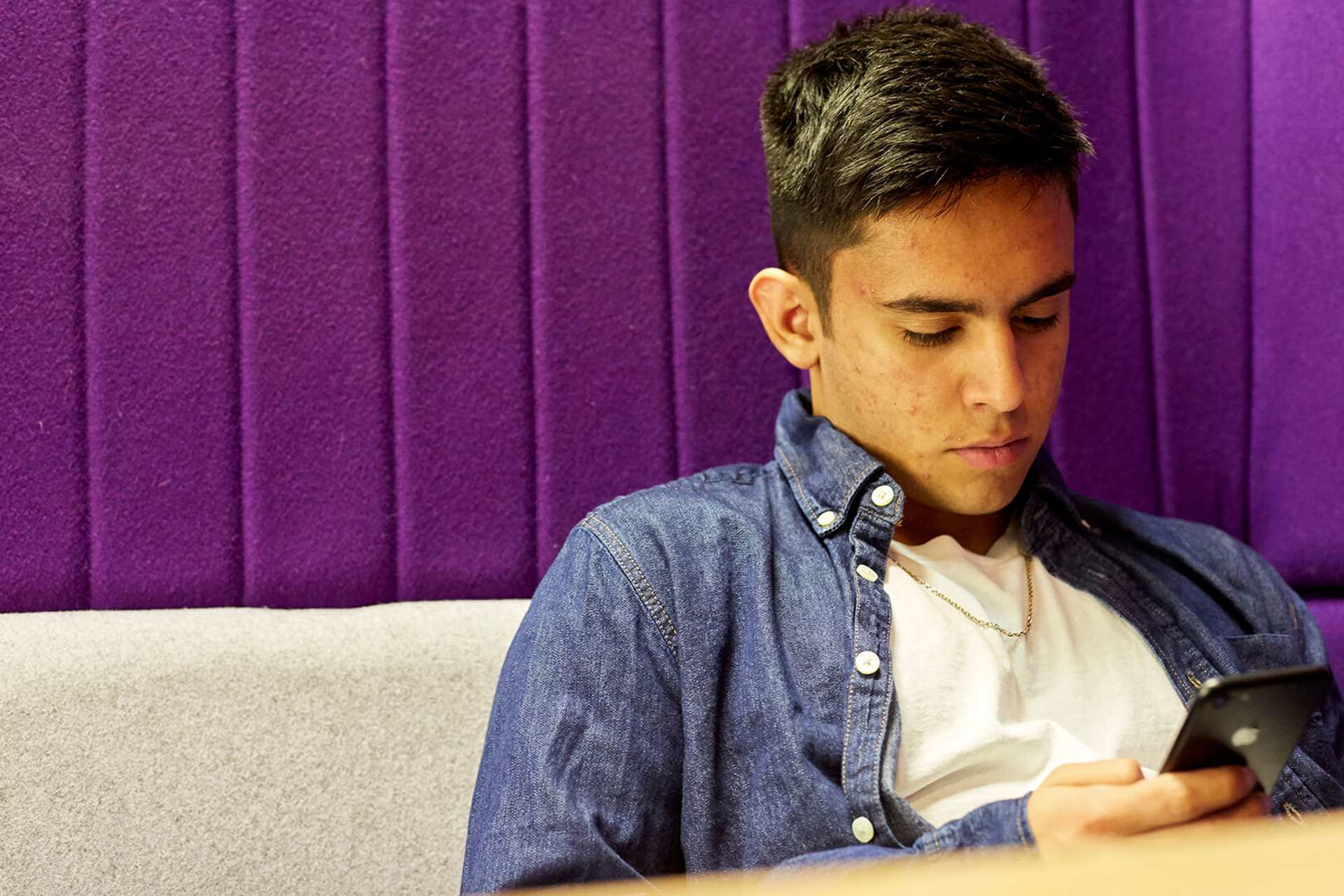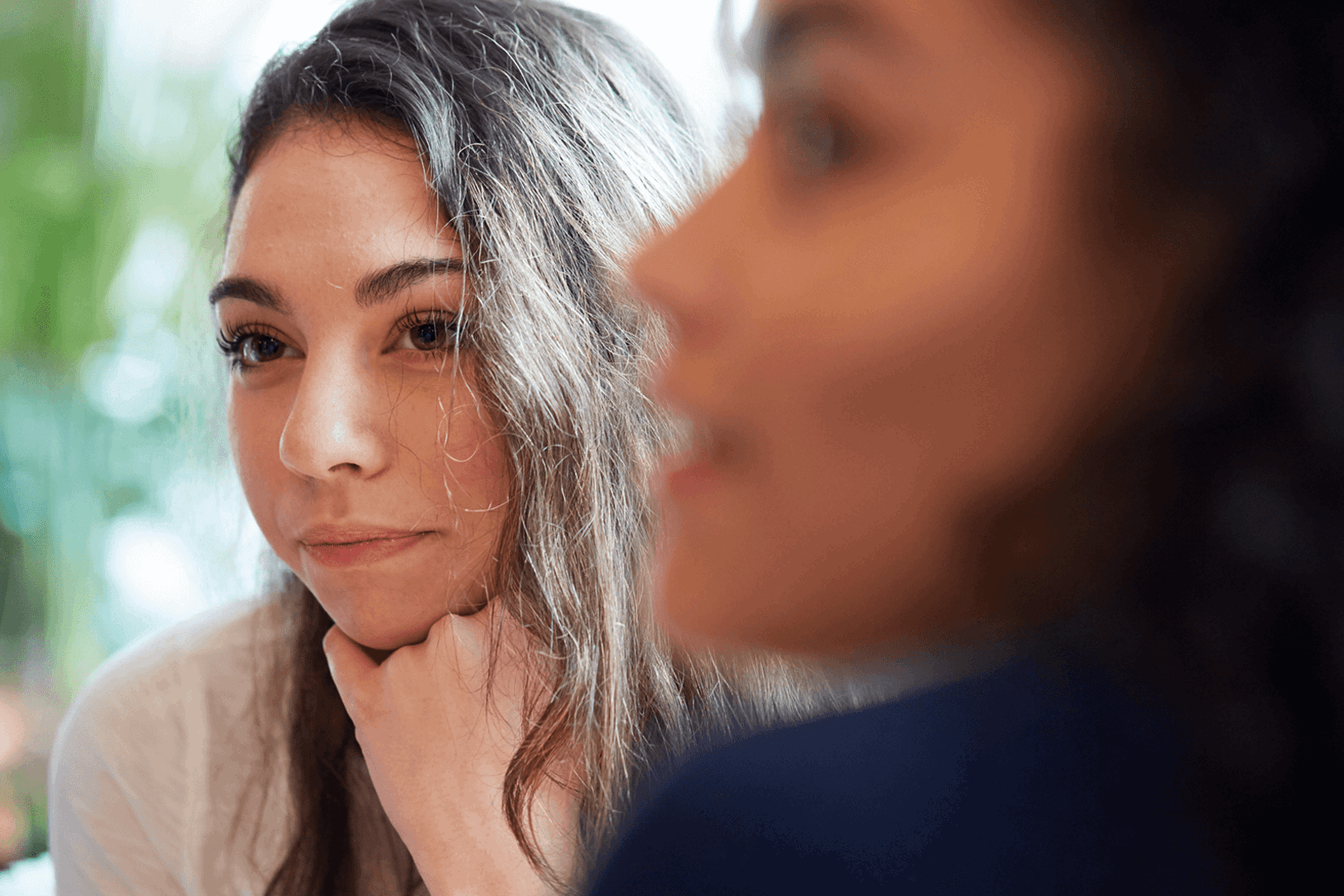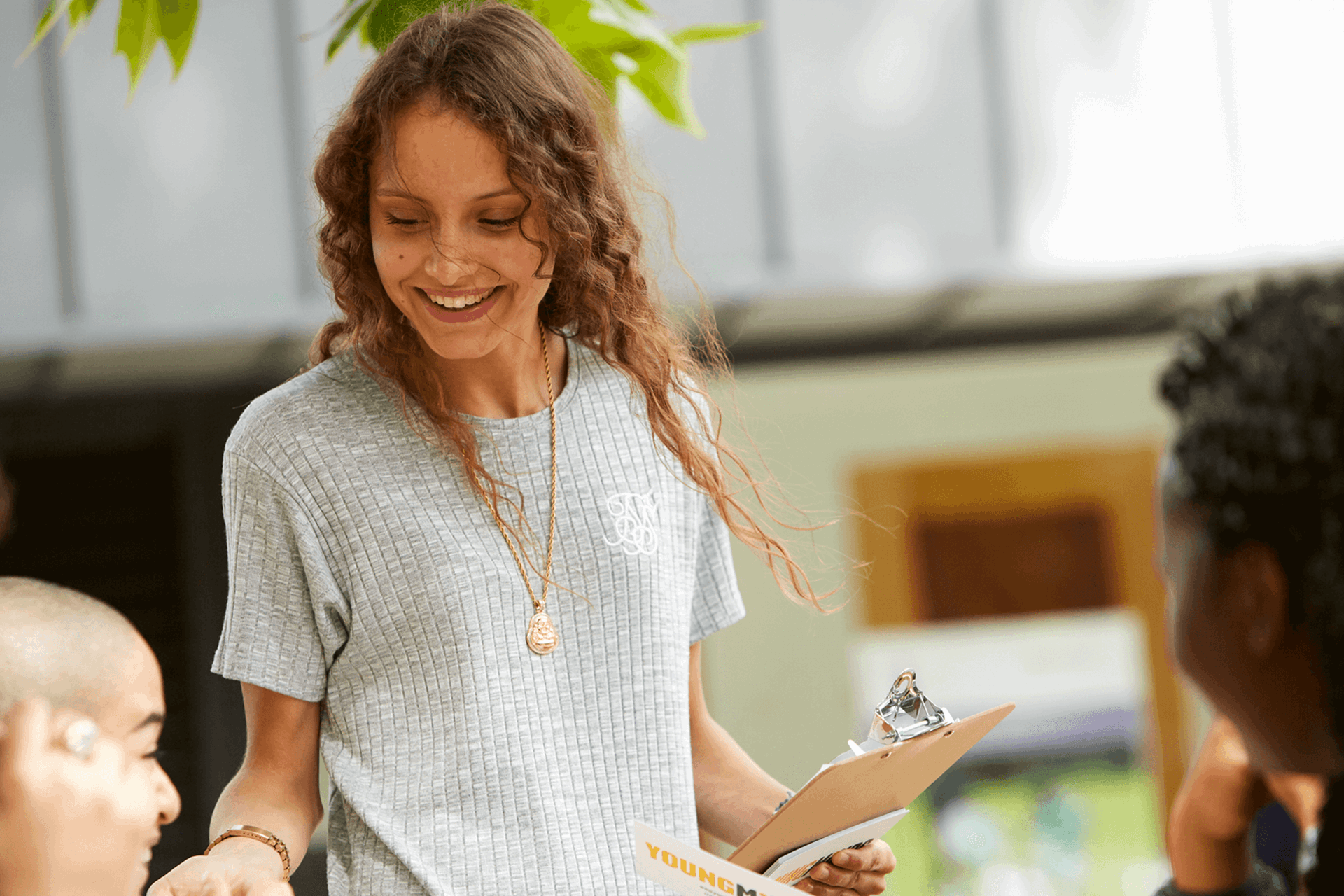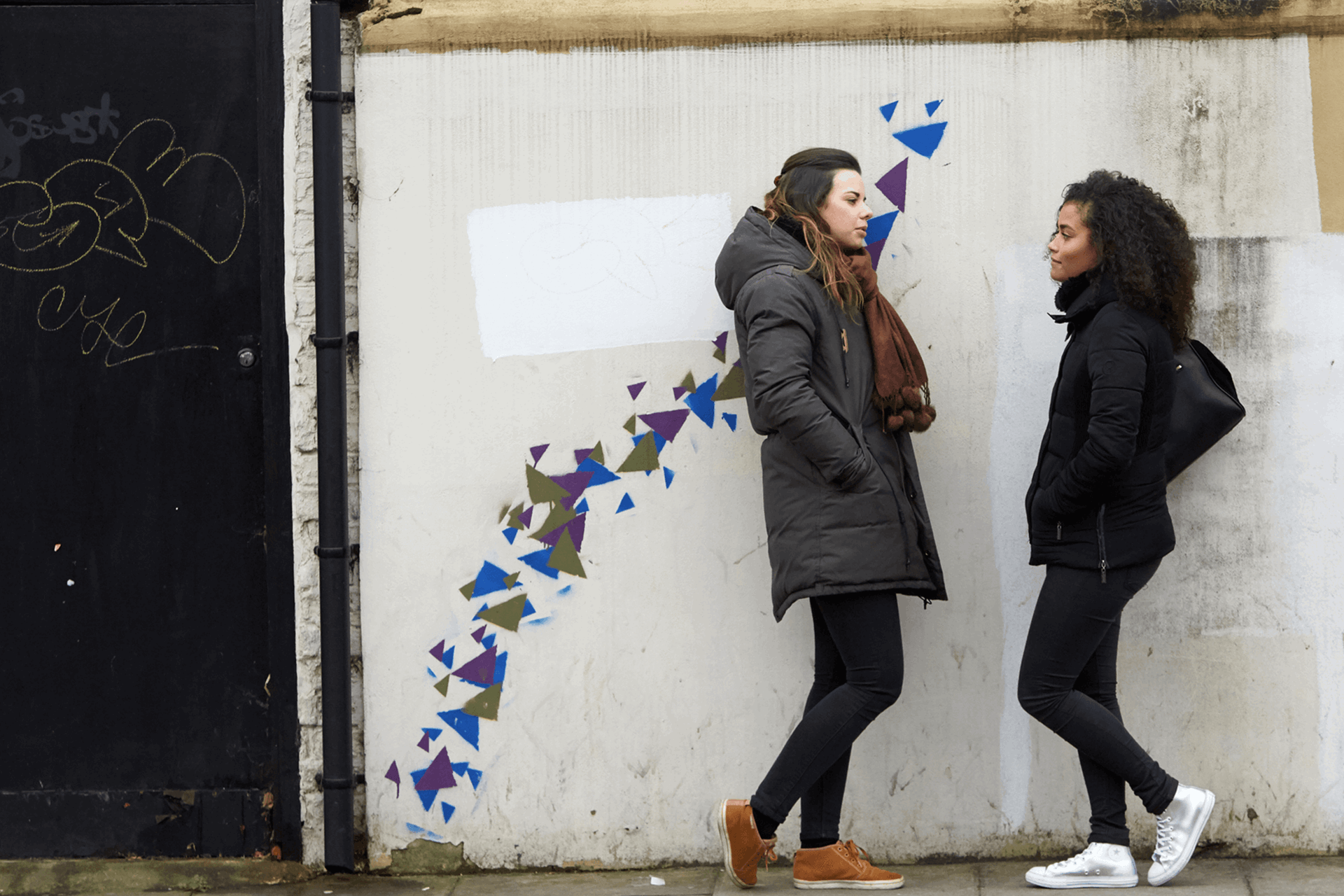Topics mentioned: counselling and therapy, anxiety
About: Aimee explains what she found helpful about doing CBT to treat her anxiety, and shares a technique she learnt in therapy that has helped her.
The road to therapy
My doctor put me on the waiting list for therapy in February 2019, as I was struggling with anxiety. A few months later, I was called to my local hospital and had a one-to-one meeting with a mental health nurse. She asked me about my situation and how I had been in the months since I was diagnosed. After she had a general idea of who I was and how I was feeling, she asked me if I felt I would benefit from counselling or cognitive behavioural therapy (CBT). She explained the fine difference is that counselling is centred a lot more on talking about how you feel, and CBT is more about coping strategies and dealing with negative thoughts.
I chose CBT because I knew that I just wanted to get better, and I wanted to learn to cope with my main symptom of anxiety, which was feeling sick. One of my main deciding factors was that I was starting at a new sixth form the following September, and I wanted to make a good impression on everyone and not feel so anxious about it.
Counselling is centred a lot more on talking about how you feel, and CBT is more about coping strategies and dealing with negative thoughts.
My first session
In April 2020, I received a phone call organising my first session, which was very scary, but I’d waited so long I think I was just ready to start.
In my first CBT session, my mum and I sat on a video call with my counsellor and talked about how I was feeling and the general plan for my sessions. I was told I could either have six or 12 sessions, once a week, but that this could be decided later on depending on my progress. The sessions were divided into three to focus on different issues, with an equal number of meetings in each. These were: social anxiety, health anxiety and my emetophobia. Personally, I really liked having this clear plan as I am a very organised person and I like knowing what to expect.
During the week, my therapist would email me some worksheets, then we’d complete them in the session. I also had homework to build on the strategies and techniques I’d learnt.
The weeks that followed flew by. All of my sessions were online through Skype. This was a challenge because it would’ve been nice to meet my therapist in person and be in a different environment, but I liked that I could be in my room with all of my possessions, which did calm me a lot. During the week, my therapist would email me some worksheets, then we’d complete them in the session. I also had homework to build on the strategies and techniques I’d learnt. Often, this was video-chatting with my friends, as this used to be a source of high anxiety for me, but as I did it more often I began to relax and get used to it, and now I can video-chat with friends or anyone without any problem.
Why I'm glad I did CBT
Looking back, I’m very glad I did CBT because it encouraged me to do things that scared me in a good way - things that I wouldn’t have done if I hadn’t attended my sessions. I noticed behaviours, mindsets and thought patterns that were having a negative effect on my mental health, and I still use the techniques I learnt in CBT to cope with these.
I noticed behaviours, mindsets and thought patterns that were having a negative effect on my mental health, and I still use the techniques I learnt in CBT to cope with these.
The thing I found most helpful was breaking down behaviours into smaller parts and identifying those parts, because it gave me a better understanding of how my anxiety works and how to prevent behaviours that don’t help me in the long term.
For example, in difficult situations my therapist told me to identify the trigger for my anxiety, an avoidance behaviour I was doing, what thoughts I was having, what symptoms of anxiety I was experiencing, and what I did in response to these. This is a technique I still use sometimes.
The thing I found most helpful was breaking down behaviours into smaller parts and identifying those parts, because it gave me a better understanding of how my anxiety works.
I found it really helpful to keep a notebook that I dedicated only to CBT, so it wouldn’t be associated with anything else. Perhaps this is just because I am an organised person, but for each session I would take notes, often noting down a lesson or something my therapist said.
It also helped me to keep track of homework and to log things over the week. For example, if a high-anxiety situation had happened over the week, I found it helpful to write it down so I could identify my behaviours and thoughts to then talk about it with my therapist. Also, keeping a notebook, document on your laptop, or an app on your phone, means that you can look back over it when you feel you need it. I will sometimes look through my book to see how far I’ve come from my first session, and to remember any techniques that have helped me get better.
Where to get help
-
No Panic
Supports people struggling with panic attacks, phobias, obsessive compulsive disorder (OCD) and other anxiety-related issues - and provides support and information for their carers.
Call 01952 680835 for a recorded breathing exercise to help you through a panic attack (available 24/7).
- Opening times:
- 10am - 10pm, 365 days a year
-
Childline
If you’re under 19 you can confidentially call, chat online or email about any problem big or small.
Sign up for a free Childline locker (real name or email address not needed) to use their free 1-2-1 counsellor chat and email support service.
Can provide a BSL interpreter if you are deaf or hearing-impaired.
Hosts online message boards where you can share your experiences, have fun and get support from other young people in similar situations.
- Opening times:
- 24/7
